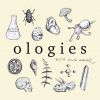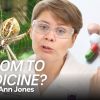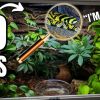-
 +1 +1
+1 +1Stock Photography Statistics and Projections
The stock photography industry began with static imagery, but it has transitioned into something more diverse, with fast-growing segments including stock video and motion graphics.
-
 +2 +2
+2 +2Remote Work Statistics: What Workers Really Think About Flexibility, RTO, and Management
Remote work is at a pivotal moment. As more employers push return-to-office policies, remote and hybrid workers are re-evaluating what they value most in
-
 +1 +1
+1 +1Nearly Half of US States Show Declining Small Business Employment Since 2022 - Insider Weekly
A comprehensive analysis of Small Business Administration data reveals significant disparities in small business recovery across the United States, with 24 states experiencing fewer small business workers in 2025 compared to 2022 levels. The study, which examined four years of federal data tracking small business openings, closures, and employment figures, provides the first state-by-state ranking
-
 +2 +1
+2 +1Even Plants Eat
-
 +2 +1
+2 +1FOX News INTERROGATES Dr. Ken Berry!
-
 +8 +3
+8 +3The Doctor Who Tricked The Nazis
-
 +1 +1
+1 +1How the Biosphere 2 experiment changed our understanding of the Earth
In the early 1990s, eight people tried to survive in a hermetically sealed glass structure filled with miniature forests, oceans and savannah.
-
 +1 +1
+1 +1Herpetology (SNAKES, FROGS, ETC.) with David Steen
Ologies with Alie Ward · Episode
-
 +11 +2
+11 +2Engineer creates ad-block for the real world with augmented reality glasses — no more products or branding in your everyday life
Recreate 'They Live' with Snapchat's AR goggles.
-
 +19 +3
+19 +3I'm Calling On RFK Jr. To Step Down
1 comments by Gozzin -
 +5 +1
+5 +1Why Keto Works Better Than Medication
-
 +2 +1
+2 +1Testing The World's Smartest Crow
1 comments by Gozzin -
 +1 +1
+1 +1A Detailed Overview of Optimising Long Form Content
-
 +1 +1
+1 +1VENOM → MEDICINE: How Deadly Bites Could Save Your Life | FULL DOCUMENTARY
-
 +1 +1
+1 +1Investigating Why So Many Amazon Workers Are Dying
-
 +1 +1
+1 +1A Cheap Daily Supplement Appears to Boost Brain Function in Older People
What's good for your aging gut may also be good for your aging brain.
-
 +1 +1
+1 +1How One Tylenol Killed 7 People
-
 +1 +1
+1 +19 Everyday Foods that Increase Dementia Risk Without Warning
1 comments by Gozzin -
 +1 +1
+1 +1Why Your Snake Hides All Day & How to Change it
-
 +2 +1
+2 +1Headlines Deceive! Major Carnivore Diet Case Backfires
Submit a link
Start a discussion




















